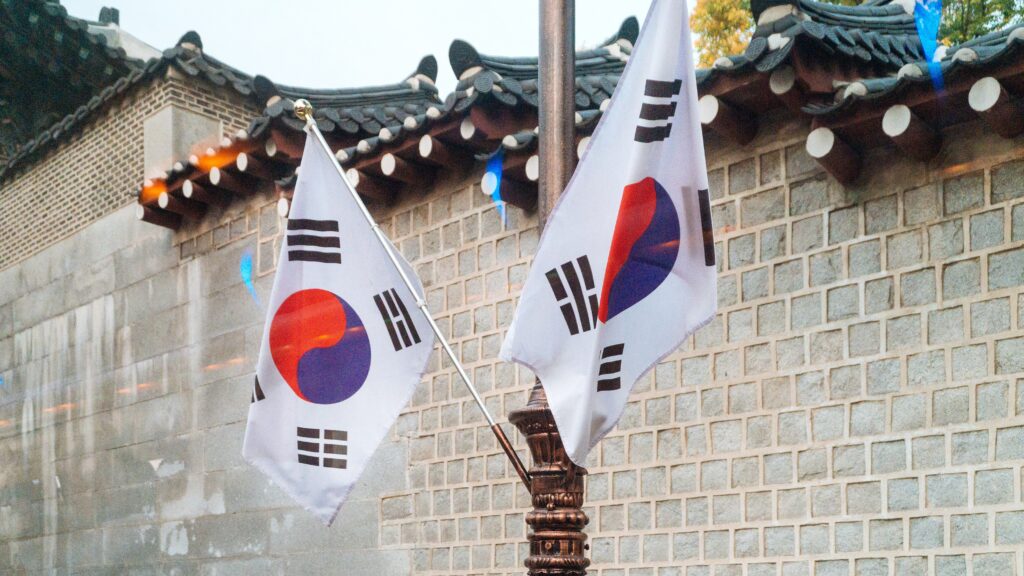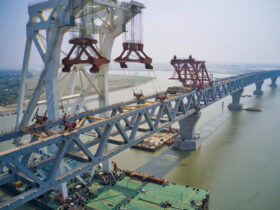The resurgence of COVID-19 cases in South Korea has not only posed huge health challenges but also revealed deep political divides within the country.
Once citing fewer than 10 COVID-19 cases a day, cases have risen to triple digits since August 14. With new clusters being attributed to gatherings of fundamentalist right-wing Christian churches and anti-government protests, these groups have come under fire for contributing to COVID-19’s spread. Underneath the cloak of health disputes, the health crisis in South Korea is incredibly telling of the expanding divide within the East Asian country’s political climate.
Previously, South Korea was widely applauded for their handling of the COVID-19 pandemic, even coining their recovery strategy as “K-Quarantine”, projecting it as a successful world model. Though other countries such as New Zealand and Australia have also been able to tame the virus, South Korea is arguably the largest democracy to “reduce new daily cases by more than 90 percent from peak”. Their success is largely due to the three pillars of fast testing, thorough tracing, and mandatory isolation, all of which is communicated to citizens daily through official government messaging systems.
Now, amid the virus’s resurgence, churches have come under fire as being virus spreaders. In particular, the fundamentalist Christian church “Sarang Jeil,” meaning “love comes first” in Korean, has faced significant criticism.
More than 1,100 cases of infection have been linked to the Sarang Jeil Church, second only to that of Shincheonji Church’s 5,200 cases in February. Its pastor, Jun Kwang-hun, has been known for his criticism of President Moon Jae-in, accusing him of being a North Korean sympathizer, as well as perpetuating and capitalizing on election fraud. Having tested positive for COVID-19, he has also battled criminal charges for spreading libel and obstructing epidemiological tracing by reportedly turning in false lists of church-goers used for contact tracing. Despite this, his devout following has not wavered, with members of the conservative right-wing blatantly disregarding social distancing measures and partaking in anti-government rallies.
On August 15th, thousands gathered to protest President Moon Jae-in’s policies, carrying pro-South Korea banners, American flags, and cut-outs of President Trump. The conservative protesters advocated for President Moon to step down, claiming that he was “handing South Korea over to North Korea”.
Though exacerbated by the rise of COVID-19 and subsequent economic hardships, the association of Christian fundamentalism and the conservative right in South Korea is not new. Rooted in Protestant American missionaries, Christian fundamentalists have historically aligned themselves with the South Korean conservative right’s’ fervently anti-communist stance and their strong opposition to the efforts to open diplomatic engagement with the North.
In the early 2000s, participation in the Christian fundamentalist movement skyrocketed as other churches started catering towards more “affluent urban professions,” alienating the lower class. As a result, the fundamentalist church bases grew. Sarang Jeil, for example, has a base largely made up of older, lower-income South Koreans, who “took the ostracization they experienced amid the changes South Korean Protestantism went through in the late 90s and turned it into a political holy movement,“ says Kim Jin-ho, a pastor and researcher at the Christian Institute for the 3rd Era.
The rise of COVID-19 cases has only deepened the existing divide in South Korea. Pastor Jun and the church have accused the government of intentionally infecting church members and publishing false COVID-19 test results to cast the brunt of the blame on churches. Many churchgoers have also criticized the government for their mishandling of the situation, with church-going patients citing that they “treated me like a ball of germs, not a citizen of the country.” Meanwhile, the government has also publicly criticized churches for being inconsiderate and senseless.
Amid the COVID-19 pandemic, tensions have been exacerbated by an ongoing recession, with the South Korean economy suffering a shrinkage of 3.3% in GDP between April and June. The recession has impacted the lower class disproportionately, brewing strong dissent from the right. Many churches also rely on donations from church attendance, furthering their opposition against government attempts to restrict public attendance.
Politically, the government’s clash with right-wing churches has only put President Moon’s administration under further scrutiny. As of August 14, his Gallup Poll approval rating dropped to 39% amidst allegations of corruption and sexual harassment allegations within the Democratic party. In addition, he began receiving heavy criticism from the right after his unsuccessful efforts to rebuild South Korea’s relationship with North Korea. Being born to North Korean refugees himself, President Moon’s original campaign policies were centered around North Korea rapprochement to establish more cordial relationships between the two countries. Since groundbreaking reconciliatory actions between the North and South in 2018 when President Moon became the first South Korean leader to be ceremonially received, relations between the two countries have deteriorated after South Korea failed to mediate nuclear agreements between the United States and North Korea. South Korea has continuously made efforts to make peace with their Northern counterpart, but their unsuccessful attempts have divided the citizens, with the conservative right accusing President Moon of being a “communist sympathizer” and advocating for his removal. Left to choose between reconciliation with North Korea and maintaining diplomatic relations with the United States, President Moon remains stuck between “a rock and a hard place” as the resulting political divide continues to deepen.
Going forward, South Korea is faced with difficult decisions between balancing virus prevention regulations, economic recovery, and managing domestic dissatisfaction with the government. Though the number of infections is now lowering, domestic political tensions still persist, and South Korea must tread carefully to avoid complete political upheaval.







